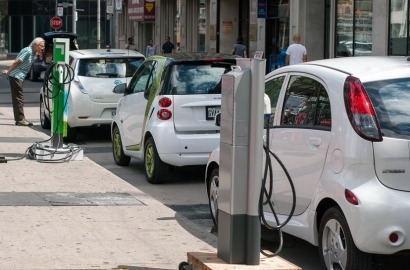
Electric vehicles are an exciting prospect. With smart grids, they may revolutionise how electricity is consumed across Europe – not least in the volume, timing and location of demand. However, people who are keen to see the switch to electric transport should not underestimate the scale of the other challenges that have to be addressed before the use of electric vehicles becomes the norm. Utilities are concerned with making networks robust enough to cope with new expectations and with having to manage them differently. Smarter grids go with smarter metering and data handling. All those things – already on the agenda – are demanding enough, but the challenges do not stop there.
Electric vehicles will be quieter and cleaner; they may even offer lower fuel costs and if climate change targets are to be met, sooner or later, a reduction in emissions from transport has to play a big part. But, electric vehicles will be judged by their users against what has served us so well for so long. We are used to being able to refuel in five minutes and to drive all day if we want to - in air-conditioned comfort. The car and battery manufacturers are trying hard to match that by breaking through today’s knowledge barriers. But already the alternative solution of a fuelling station where – rather than re-charge – we would swap a discharged battery for a charged one, is being considered. However, would muscle power become a requirement for working in those places? Or, would that challenge be met with battery standardisation and specialised handling gear?
Most of today’s cars run on petrol or diesel and we drive to petrol stations to fuel them. The stations where we fill up were not planned and built as part of a master plan, of course. They were built in response to growing demand and in more recent times, lots have closed because of the lack of it – many rural garages have become unprofitable. Even where population is dense, demand can be affected by the availability of good public transport. In rural areas, it is a particular problem because people rely so heavily on their cars and there is intense pressure on the subsidies that maintain the already limited public transport services.
Of course, as technology makes electric vehicles more viable, the electricity supply industry will play a huge part in providing and managing the power upon which they depend. Utilities and consultancies such as Navigant are already deeply involved in solving the issues that must be addressed.
However important those issues are, this is not just a series of engineering challenges. The transition needs to be considered from the point of view of the people that will use the new vehicles. In the UK, some have already taken the plunge. Subsidies on electric vehicles will have encouraged them, and so will measures like zero-rated vehicle taxation and exemption from London’s congestion charge. But, these people are an enthusiastic, mainly urban, minority who make only short trips and who can afford to be early-adopters. They are, of course, using today’s infrastructure and technology - which would be totally inadequate if the transition gathered pace.
What about the other 99 per cent? What would induce them to go electric? The new cars would have to become cheaper to buy of course and more convenient to use. New infrastructure would have to be built in advance of a mass take-up. But, what would finally induce a family to change their petrol- or diesel-fuelled car for an electric one? A law banning petrol- or diesel-powered cars? Or a tax that made them too expensive to run? This would probably make those vehicles worthless and voters would not take kindly to that. Even bigger subsidies for electric vehicles, perhaps? Government payments for scrapping older vehicles? But governments tend to be heavily-indebted and short of cash. Perhaps utilities would get involved, offering inducements to their customers. But, few utilities are awash with cash either. So, could this be the issue that will bring new names into electricity supply, perhaps investing not only in electric vehicles and their infrastructure, but also in the commodity that keeps them moving?
There are also big questions concerning government income. The British government currently receives approximately £27 billion (€37 billion) per year in fuel duty and London collects, net of facilities and running costs, £150 million (€210 million) from the Congestion Charge. Not only that, but in the UK, the annual taxation of vehicles is related directly to their CO2 emissions, with electric vehicles currently paying nothing. One way or another, government would have to maintain its revenue. Perhaps someone in the Treasury has calculated what VAT on ‘extra’ electricity sales might raise.
I have no doubt that the electricity supply industry can cope with the challenge of a transition of electric vehicles. But, as it develops its thoughts on smarter infrastructure, it will need to reassure itself that public policy is also as smart as it needs to be. Not only smart, but consistent in its application across Europe.
Electric Vehicles will be a key topic of discussion at the upcoming POWER-GEN Europe and Renewable Energy Europe conferences that are being held at the Amsterdam RAI from 9-11 June 2015. For further information go to http://www.powergeneurope.com/.

